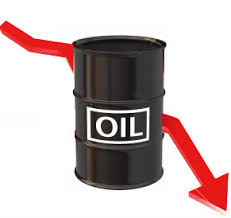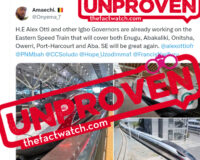The Federal Government, on Monday, announced that the licensing round for seven deep offshore open oil blocs, which commenced on January 3, 2023, would last for four months.
It invited investors from across the world with capability and experience in deep water operations to embrace the fiscal provisions of the Petroleum Industry Act 2021 and join in bidding for the oil blocs.
The Chief Executive, Nigeria Upstream Petroleum Regulatory Commission, Gbenga Komolafe, disclosed this in Lagos at the pre-bid conference for the 2022/2023 licensing round of petroleum prospecting licences in deep offshore Nigeria.
The pre-bid conference was held following the announcement of the 2022/2023 mini-bid round exercise on December 22, 2022.
Speaking at the conference, which had its theme as “Growing Upstream Investment in Nigeria through Licencing Round: The Bid Process and Opportunities,” Komolafe said the approval of the exercise by the President, Major General Muhammadu Buhari (retd.), was the first in the last 15 years.
In his speech, which was made available to our correspondent in Abuja, the NUPRC boss explained the commission had announced the commencement and launched the bid round portal which was officially opened on January 3, 2023.
“The exercise is scheduled to last for approximately four months along the following processes: registration and pre-qualification, data prying/purchase, technical bid submission/presentation, technical bid evaluation, and commercial bid conference,” he stated.
He notesd that in compliance with the provisions of the PIA 2021 and regulations made pursuant to the Act, the commission issued a licensing round guideline and published a licensing round plan for a total of seven deep offshore open blocs.
He outlined the blocs to include PPL-300-DO, PPL-301-DO, PPL-302-DO, PPL-303-DO, PPL-304-DO, PPL-305-DO and PPL-306-DO.
Komolafe said, “The seven deep offshore blocks, covering an area of approximately 6,700 km2 in water depths of 1,150m to 3,100m, are on offer in this mini-bid round.
“These are intended to be the first in a series of bid rounds aimed at further development of our prospective petroleum basins.”
He said the bid rounds were within the context of the commission’s legal and regulatory frameworks, as enshrined in Section 73 of the PIA, which sought to encourage new investors and investments into the next phase of oil and gas exploration in Nigeria.
“Let me clearly indicate that this pre-bid conference is a clarion call to technically and financially capable local and foreign investors to invest and take advantage of the generous fiscal and regulatory regime in the Nigerian upstream petroleum sector.
“The mini-bid round is a market-driven programme expected to outperform the last bid round which was held in April 2007 during which a total of 45 blocs were put on offer under a different regulatory regime (the Petroleum Act, 1969),” he stated.
Also speaking at the pre-bid conference, the Minister of State for Petroleum Resources, Timipre Sylva, said the process was formulated in cognisance of global sustainability goals.
“On the global scale, the licensing round will no doubt be beneficial to all stakeholders and will in the long run contribute to long-term global energy sufficiency”, he said.
According to the minister, interestingly, the oil and gas industry in Nigeria has embraced the reality of energy transition and is taking a strategic position to leverage the opportunities presented by the unfolding era.
Sylva also said that seven oil blocs had been listed for the ongoing mini 2022/2023 bid rounds.
“The seven deep offshore blocks have been thoroughly evaluated and are believed to have significant potential for hydrocarbon reserves. They are in some of the most promising areas of the deep waters of Nigeria which have been de-risked by other producing fields nearby,” he said.







